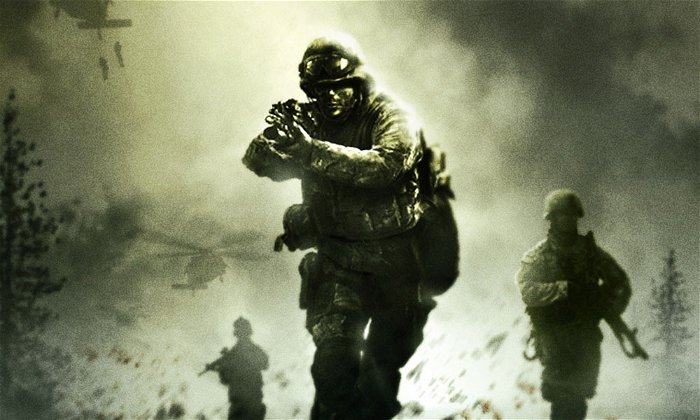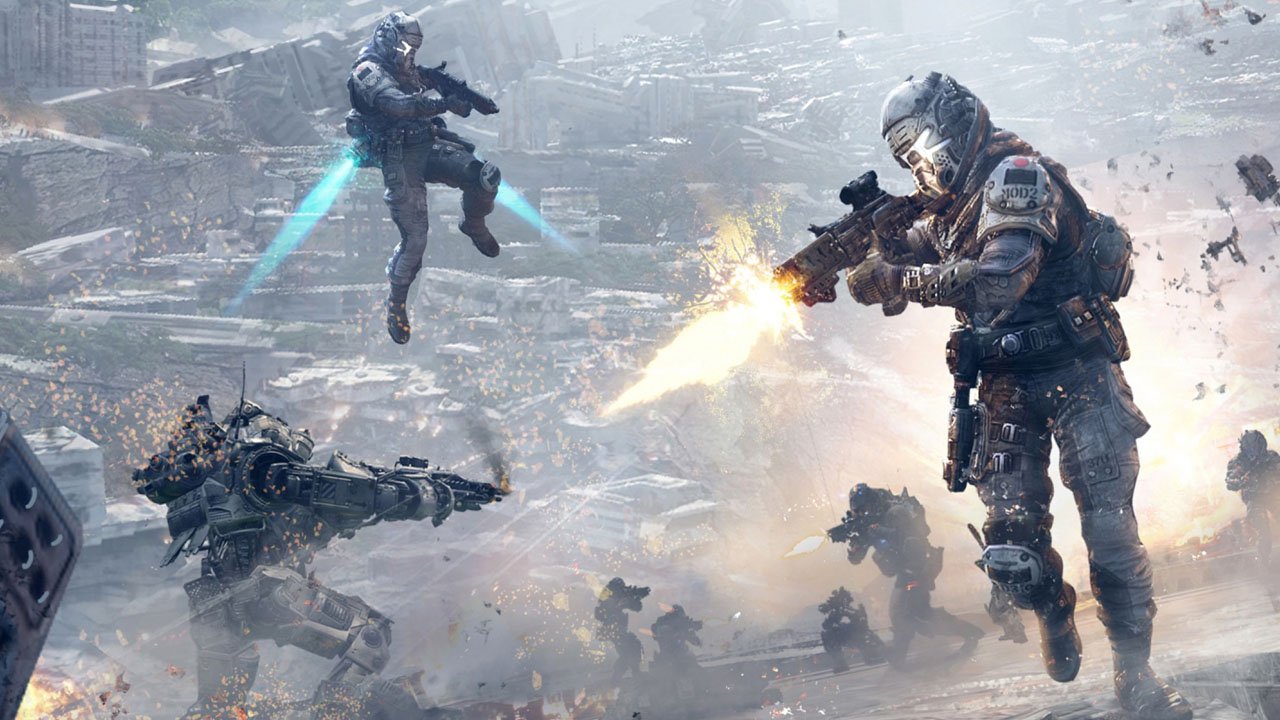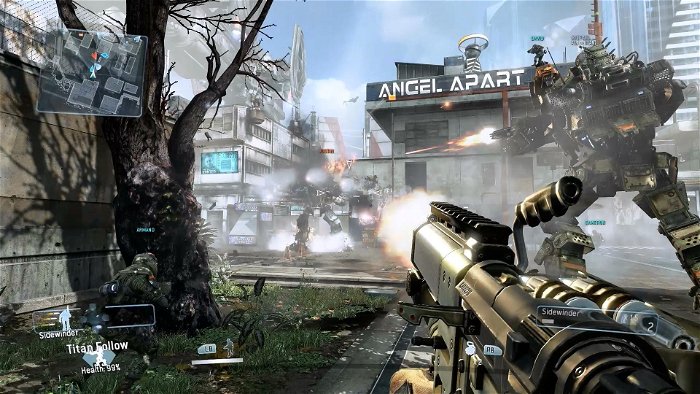I thought Titanfall was going to be a bigger deal than it is. That’s on me. As much as I try to resist the promises of marketing and previews—knowing that reality is always less exciting than pre-release coverage makes it out to be—I’ll admit that I was under the impression that Respawn Entertainment’s debut shooter would be pretty revolutionary. Instead, Titanfall is nothing more than a really good game. That should be enough, but it’s still a little bit disappointing.
Multiplayer shooters have been stagnating for quite a while now. Since the innovations introduced by Infinity Ward’s Call of Duty 4: Modern Warfare, nothing much has changed. The mechanics that Modern Warfare blended into otherwise traditional styles of play (like team death matches and capture the flag) fundamentally altered how people interacted with the game. Experience points, previously found almost exclusively in role-playing games, were tied into increasing skills (or “perks), unlocking new equipment, and customizing weapons. Rather than concentrate on improving their reflexes and enjoying each round of multiplayer competition for its own sake, players were given the overarching goal of levelling up their profile. After Modern Warfare’s release, these persistent RPG-style statistics became multiplayer staples. And they worked because a sense of progression keeps people invested—keeps them logging in and trying to get better at a game over a longer period of time than they may otherwise have committed to it. The only problem is that Call of Duty 4 came out in 2007 and since then nothing else has been able to introduce the kinds of innovations that made it such a landmark.

Titanfall seemed like it might have been this next step forward when it was first unveiled. Its developer is comprised of ex-Call of Duty designers, the same Modern Warfare veterans who shook up an entire style of gameplay seven years ago before moving on to start Respawn Entertainment. If any studio has the experience, talent, and willingness to revolutionize the online shooter, it’s Respawn. Titanfall, with its mixture of controllable mechs and free-running foot soldiers, looked like the perfect opportunity to make something truly different. Leading up to its release, I imagined it as a new kind of middle ground between Call of Duty’s snappy gunplay and Battlefield’s vehicular chaos. Moving around the map seemed like a joy in and of itself and air-dropping giant robots into the middle of combat seemed like the kind of wild card that would discourage traditional gameplay. Before actually playing it, Titanfall appeared to be the shot in the arm that competitive multiplayer has needed for years now.
The reality is pretty great, but not the watershed moment I was hoping for. Even though the novelty of Titanfall’s systems makes it far more exhilarating than the familiarity of better established multiplayer games, it’s also cut from the same cloth as its competition. Each match boils down to a race to kill opposing players as quickly as possible. Piloting a Titan, while offering a nice change of pace from on-foot movement, doesn’t feel much different from a slightly slower take on traditional first-person shooter mechanics. The online enabled campaign levels shuffle plot points and world-building exposition far to the side and comes off as a lazy afterthought instead of an intelligent redesign of traditional single-player story modes. Nothing reinvents the wheel here. That doesn’t make Titanfall a bad game by any means (I’m still having loads of fun with it), just one that is disappointing in the wider context of multiplayer videogames.
It leaves me wondering what kind of innovation is necessary to change the genre as profoundly as Modern Warfare did nearly a decade ago. Probably the most imaginative multiplayer mode in recent years has come from Naughty Dog’s The Last of Us, a game that switches pace from frantic action to slower and more deliberate struggles for survival. But even this, a competitive option that does attempt to stand out from the crowd, hasn’t caught on in the same way that any Call of Duty has. I can’t predict what type of experience will be able to accomplish that feat, but it will probably be fast-paced, easy to learn, and difficult to master. This time last year I would have pegged Titanfall as the game that best looked to fit that particular bill. Now, I’m back to keeping my eyes open for the next likely candidate





